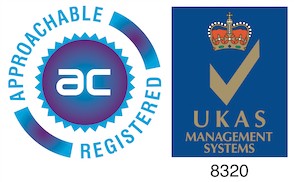New World, Same Laws: Trade body warns retailers about compliance with age-restricted sales
The Age Verification Providers Association (AVPA), formed in 2018, is a not-for-profit trade body representing organisations who provide age-verification services.
We spoke with Iain Corby, Executive Director of the AVPA on how retailers are having to adjust to the current pandemic and what the AVPA is doing to help with compliance of age verification.
AC: These are unprecedented times. What is the impact on the Age Verification Sector?
IC: As the trade body representing companies in the SafetyTech sector which provides online age verification, we’ve seen our members rapidly adjust to the new business environment in which we all find ourselves. The lockdown has meant most staff are working from home, and luckily tech businesses are perhaps those that find this transition the easiest.
But people are still finding their feet. Collaboration over video conference, or through instant messaging, emails or even old-fashioned conference calls, still struggles to be as effective as getting together in a room with a whiteboard, and I am not sure it ever will.

Iain Corby, AVPA
But the new rules have also affected the market for age verification technology, as existing online stores have seen sales volumes increase rapidly, requiring more checks for age-restricted goods. And of course, there has been a massive influx of new online retailers, as bricks and mortar businesses that have to-date resisted the temptation to move onto the internet no longer have any choice about the matter.
Face-to-face engagement is also important for building relationships from which sales are primarily achieved, so this is inevitably going to slow the sales cycle for our members at first. They will miss the many trade shows and conferences where they were able to explain the world-class technology developed here in the UK, and about which many other countries, as far apart as Australia and Poland, are still inquiring. But these events are looking at how they can move online themselves, so hopefully, some semblance of normal commercial activities will return.
AC: What is the AVPA doing to help fight COVID-19?
IC: We realised pretty quickly that the technology could be easily re-purposed to enable vulnerable people to get priority delivery and collection slots through online supermarkets, and indeed other goods and services. Currently, the NHS has given an algorithmically generated list of 900,000 Shielded Patients to the main supermarkets, who are looking to see if their existing customers are on the list, and then offering them special access to deliveries.
But this list is going to grow, perhaps by 600,000 or so, as GPs and other professionals add people to that original list. So we need a real-time solution.
We also need to give access to patients who did not have an existing online supermarket account. It’s not as simple as just opening a new one, as they may not have been included on the initial Shielded Protect list for preferential treatment.
So, we’ve suggested to the government and supermarkets that Age Verification providers could issue encrypted tokens to sit on the computers of those who should get priority, by checking applicants against a live list, and when those tokens are used, double-checking people are still on the list and ensuring that deliveries are destined for that registered address.
The tactical solution currently being put into place is probably sufficient for a few weeks more, but this idea would create a strategic response which will last for as long as we need to protect those most at risk from the virus by keeping them safe at home.
AC: What is the AVPA doing to help its members?
IC: We’re going to be promoting age verification, particularly for businesses newly online, ensuring they understand the law, and the practical methods available to them to apply a safe, secure, cost-effective age verification for their customers. We’ve been in touch with other trade bodies and plan to jointly publish short advice guides which emphasise the requirement for rigorous, independent and standards-based age verification for a wide range of age-restricted goods.
AC: What new risks does COVID-19 pose in this field?
IC: The principal concern is around home deliveries, which is of course the main sales channel for most online retailers. With drivers understandably keeping a safe distance from customers, then doorstep age-checks are no longer viable. This makes reliable age verification at the point of purchase, online, even more important, giving retailers a stronger defence than if they simply blame the virus for dropping all attempts at checking customers are not underage.
For example, it is an offence under Section 146 of the Licensing Act 2003 to sell alcohol to children. A defence, when charged with that offence, is that all reasonable steps were taken to establish the individual’s age. Anyone selling online or by phone should already be taking steps that go beyond an “I am 18+” tick box to verify age at the point of sale.
The Home Office advises that: “Anyone selling alcohol online or by phone should already be taking all reasonable steps to verify age at the point of sale in order to avoid committing an offence of selling alcohol to a child. PAS 1296 is a good point of reference for these steps.”
(PAS 1296 is a code of practice, written by the AV sector in partnership with the British Standards Institution (BSI) which will ensure that age checks are done to a sufficiently high standard to satisfy regulators, such as trading standards officers.)
So, there was already a lot of work to do to raise awareness amongst retailers of the rules around underage sales online before the current pandemic; now we have even more businesses to communicate with to ensure they know what they have to do to stay compliant, and how they can do this effectively with the help of AVPA members.






